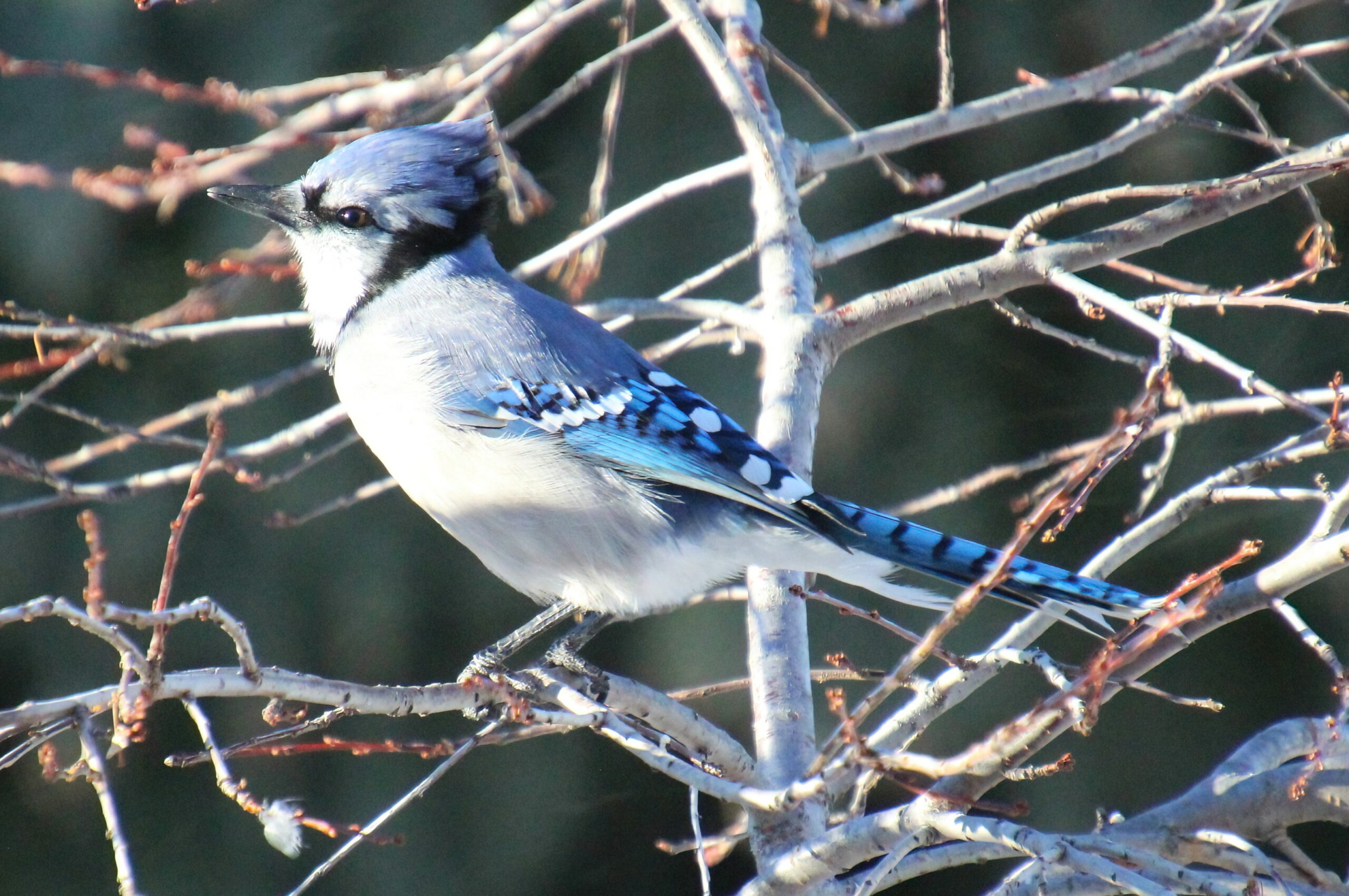Now that we are a few weeks past the winter solstice, the shortest day of any year is but a memory. From the solstice on we gain a few seconds and then significant minutes by March. The warmth of the coming spring sun, after the coldest days of January have long passed, gives us the extra energy.
Adding to change is a cacophony of sounds it seems. Upon your careful listen, individual bird songs are truly distinguishable. The nasally honk of the nuthatch, the screech of the blue jay and the asynchronous calls of a flock of house sparrows flood the air. Indeed you are out on an early January walk. A light tapping on a nearby aspen tree trunk hints of a woodpecker. The most welcoming, joyful and uplifting call of the chickadees landing on branch tips not too far from you, inquire as to your journey. Blue skies and the soft sunlight of mid-afternoon surround you. A light crunch of snow beneath your boots attract your attention. The soft and soothing trills of the Bohemian Waxwing flock overhead causes you to look upward. Inside, a feeling of life’s energy and health surge to your consciousness. You are indeed alive!
You’ve intuitively have always known that your interaction with birds has improved your physical and mental well being. Environmental neuroscientist, Emil Stobbe, graduate student at the Max Planck Institute for Human Development has explored the human-nature connection using two studies. Applying to even urban environments as well as forested areas, bird songs links humans to the natural world. In a recent study, using the smartphone App, “Urban Mind”, 1292 individuals completed a total of 26,856 ecological momentary assessments over a three year period. These momentary assessments specifically involved seeing or hearing birds. Conclusions drawn from the collected data supported better mental well being for not only healthy individuals but also those with a diagnosis of depression. The impact of seeing or hearing birds lasted for hours even if the subjects did not encounter birds at the next check-in during the study.
Stobbe’s second study published in October of 2022, noted that bird songs can alleviate anxiety and paranoia in health participants. In a randomized on-line experiment 292 subjects were exposed to one of four conditions for six minutes: low traffic noise, high traffic noise, low birdsong (2 species), high birdsong with high diversity (8 species). Measurements included cognitive tasks and questionnaires on anxiety, depression and paranoia. Results were the same for cognitive tasks in all four conditions. However, the birdsong conditions clearly reduced the negative psychological states while the traffic scenarios increased the negative impacts. Even listening to bird songs on an audio recording was found to have a significant positive impact on well being.
As your walk continues you feel more at ease. The exercise too, creates that positive sense of health. Vitamin D, scarce in winter is a gift from the sun. You’ve decreased your blood pressure and lessened the chance of heart disease. The Doobie Brothers were right: “listen to the music”.
Listen to the “Music

In response to Canada's Online News Act and Meta (Facebook and Instagram) removing access to Canada's local news from their platforms, Anchor Media Inc encourages you to get your news directly from your trusted source by bookmarking this site and downloading the Rogue Radio App. Send your news tips, story ideas, pictures, and videos to info@anchormedia.ca.




